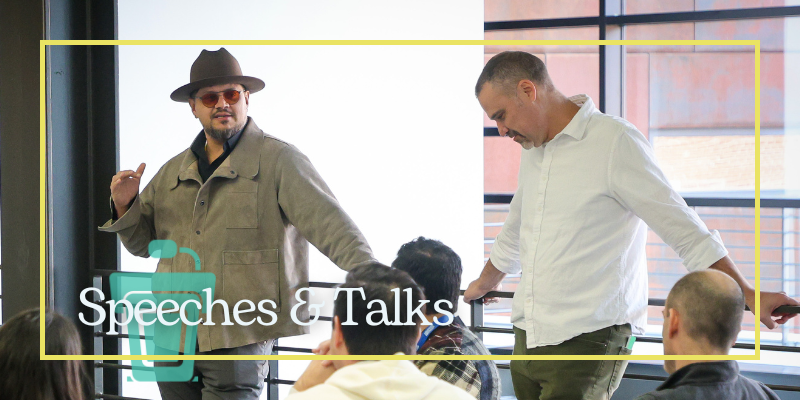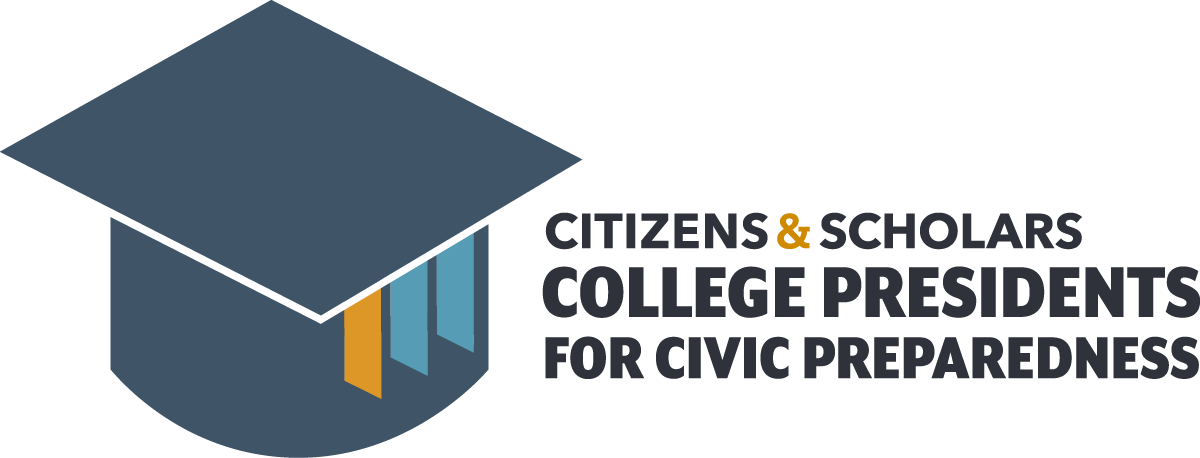Unscripted Speeches and Talks

There’s nothing better than practicing dialogue than exhibiting it through the art of speeches and talks. These schools brought speakers and hosted talks to promote dialogue.
The University of Tulsa
According to Peter Slevin, a writer for The New Yorker, writers and journalists “aren’t dead yet.” In fact, Slevin says writers and journalists are more crucial than ever in a world where misinformation runs rampant. A recent University of Tulsa Switchyard program event, “Covering Chaos,” convened journalists, students, and media practitioners from The Atlantic, The New Yorker, and The New York Times. Topics ranged from fear as a political tactic to fighting against the trend of false narratives that shape public perception. Panelists urged attendees to be vigilant truth-seekers, combat misinformation, and apply ethical journalism practices, emphasizing the human responsibility in delivering accurate news.
Hear from the panelists about the role of journalists in preserving truth in an era of misinformation:
“We need to be a bulwark against the unprecedented lies that we’re up against and how they’re resonating. We need to hold the liars, the hypocrites, the grifters to account, as hard as that is in their moment of triumph. We need to understand what we’re up against, which is lying as a strategy.” Peter Slevin, writer for The New Yorker
“You know you do what you do because you understand that you are staying true to a certain idea of truth, and I think that I would say, ‘Double down,’ and the doubling down might get hard,” he said. “It might indeed have the repercussions the dissidents have faced in other countries.” Gal Beckerman, editor at The Atlantic
Hamilton College
Convocation addresses are usually a chance for university leaders to set the tone for the year and welcome new students to campus. At Hamilton College, this tradition is being taken a step further as a call for deeper engagement. In his address to the Class of 2028, President Steven Tepper encouraged students to push past their comfort zones, while Dean of Faculty Ngoni Munemo urged them to stay true to their beliefs but be open to conversations that challenge their intellectual and ideological perspectives.
Hear from President Steven Tepper:
“You are here because you deserve to be here and because you are willing to ask questions. You don’t know everything, and you have much in the world to learn. You will make many mistakes, learn from them, and we will celebrate them together. So go, stay open, don’t get overwhelmed. Ask for help. And remember, this is your time. You will change us with your ideas, with your questions, with your cultures, with all of your identities. And I cannot wait to embark on this educational journey with all of you.”
Amherst College
President Michael A. Elliott of Amherst College talks with student and president of Amherst Political Union Lukas Luby-Prikot to discuss the challenges of navigating political conversations that can quickly turn divisive and confrontational. From the future of the Republican party to the Israel-Palestine war and the recent election, Lukas shares his perspective on finding common ground amid conflicting viewpoints. “We make it very clear that when people come in, there are some political perspectives that you must bring with you—that everyone is equal in dignity, and that everyone should be treated with respect.”
